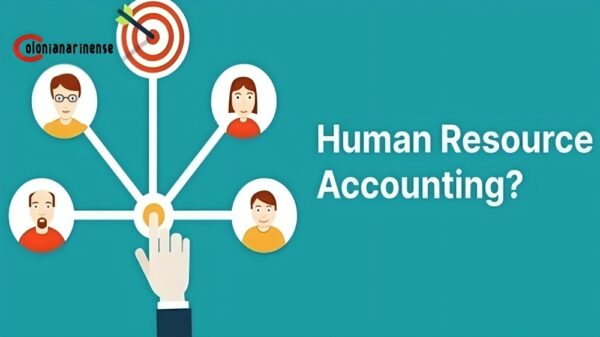Human Resource Accounting (HRA) is a method used by organizations to identify, report, and manage investments in their workforce. By assigning a value to human resources, companies can assess their staff’s contribution, measure productivity, and make more informed decisions on training, development, and recruitment. But while HRA has several advantages, it also comes with certain challenges. Here’s an overview of the benefits and drawbacks of HRA in the modern workplace.
Advantages of Human Resource Accounting
- Strategic Team Planning
Human Resource Accounting provides a clear picture of team dynamics, showing who excels in specific roles and where improvements are needed. This insight helps management make strategic staffing decisions, placing employees where they can perform best and contributing to a stronger, more cohesive team. - Tailored Training Programs
HRA allows companies to identify areas where employees may need skill development, helping to design customized training programs. This targeted approach enhances employee skills and productivity while increasing engagement, as staff feel their professional development is prioritized. - Informed Policy Development
With insights from HRA, organizations can create policies that align closely with employee needs and company goals. HRA helps in shaping guidelines for promotions, career progression, and other HR policies, fostering a work environment where employees feel valued and motivated to stay. - Increased Employee Morale
A transparent HRA system can boost employee morale by showing staff that their contributions are recognized and valued. When employees feel appreciated and part of a larger goal, they are more likely to be committed and loyal, reducing turnover rates. - Attracting Top Talent
Companies that invest in HRA are often seen as people-focused and forward-thinking, making them attractive to skilled professionals. HRA gives companies a competitive edge in recruitment by projecting an image of respect and appreciation for their workforce. - Competitive Advantage
HRA enables companies to make strategic decisions about workforce management, providing an edge over competitors. By attracting, retaining, and optimizing talent, companies set themselves up for sustained success and growth in the future.
Disadvantages of Human Resource Accounting
- Lack of Standardized Guidelines
One of the primary challenges of HRA is the lack of clear, standardized guidelines for valuing human resources. This can make it difficult to separate the actual cost of maintaining a workforce from the intrinsic value of each employee, leading to inconsistencies. - Difficulty in Measuring Intangible Qualities
Quantifying the value of human talent is inherently subjective, and it’s challenging to measure intangible qualities like creativity, leadership, or teamwork. As a result, HRA may not always provide a full or accurate picture of an employee’s value. - High Costs and Complexity
Implementing HRA can be resource-intensive and costly, requiring specialized software, trained personnel, and dedicated time. Smaller companies may struggle with the financial and operational demands of HRA, making it more feasible for larger organizations. - Lack of Standardization Across Companies
Each organization may approach HRA differently, resulting in inconsistencies that make it difficult to compare data across companies. Without a standardized framework, evaluating or benchmarking against other organizations becomes challenging. - Ethical Concerns
HRA can sometimes lead to viewing employees as financial assets rather than individuals, which raises ethical concerns. When companies focus too much on assigning monetary value to employees, they risk dehumanizing the workforce and ignoring the personal aspects of employee wellbeing. - Legal and Privacy Risks
Assigning a value to employees can raise legal issues, especially if data is used in ways that may be perceived as discriminatory or invasive. Privacy regulations and labor laws require careful handling of HRA data to avoid potential legal repercussions.
Conclusion
Human Resource Accounting offers both potential benefits and significant challenges. While it can be a powerful tool for strategic planning, training, and policy-making, it also requires careful consideration of ethics, accuracy, and privacy. For companies that successfully navigate these complexities, HRA can lead to a more engaged, effective workforce and a stronger competitive position.
FAQs about Human Resource Accounting
What is Human Resource Accounting (HRA)?
HRA is a method used to assign a value to an organization’s human resources. By analyzing investments in workforce training, development, and retention, HRA helps companies make data-driven HR decisions.
How does HRA benefit employee morale?
HRA recognizes employees’ contributions and development, helping them feel valued and respected within the company. This positive reinforcement can increase job satisfaction and reduce turnover rates.
Is HRA suitable for small businesses?
While HRA offers valuable insights, its implementation can be costly and complex. Small businesses may find it challenging to allocate resources for HRA, making it more practical for larger organizations with dedicated HR teams.
Are there privacy concerns with HRA?
Yes, HRA requires careful handling of sensitive employee data to ensure compliance with privacy laws. Improper use of HRA data could lead to privacy violations or even discrimination, making it essential to use HRA ethically and transparently.
What are the challenges of measuring human resource value?
Measuring human resource value is complex due to the subjective nature of human qualities, like creativity and leadership. This can lead to inconsistencies, as different organizations may use varied methods to assess employee value.



